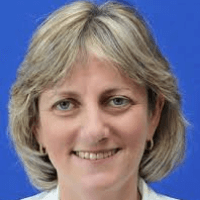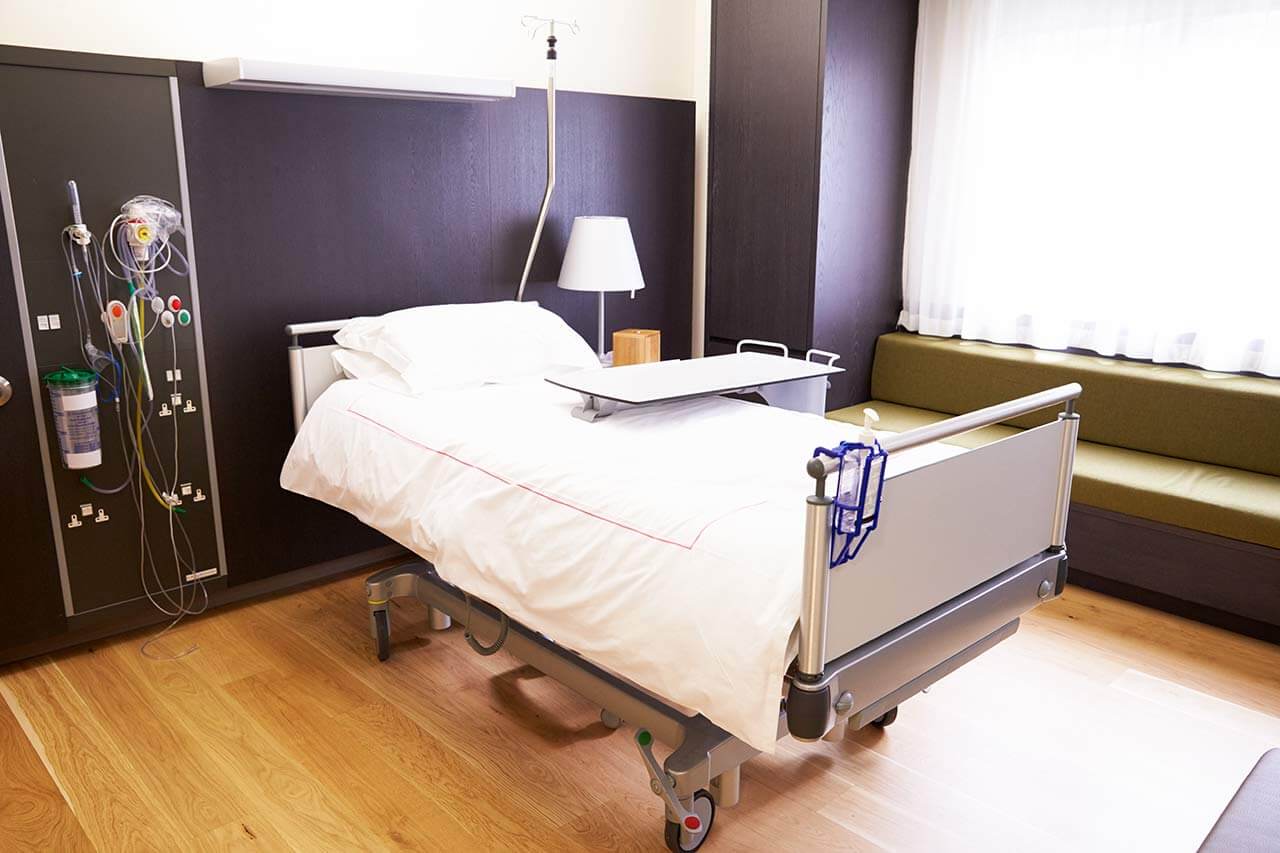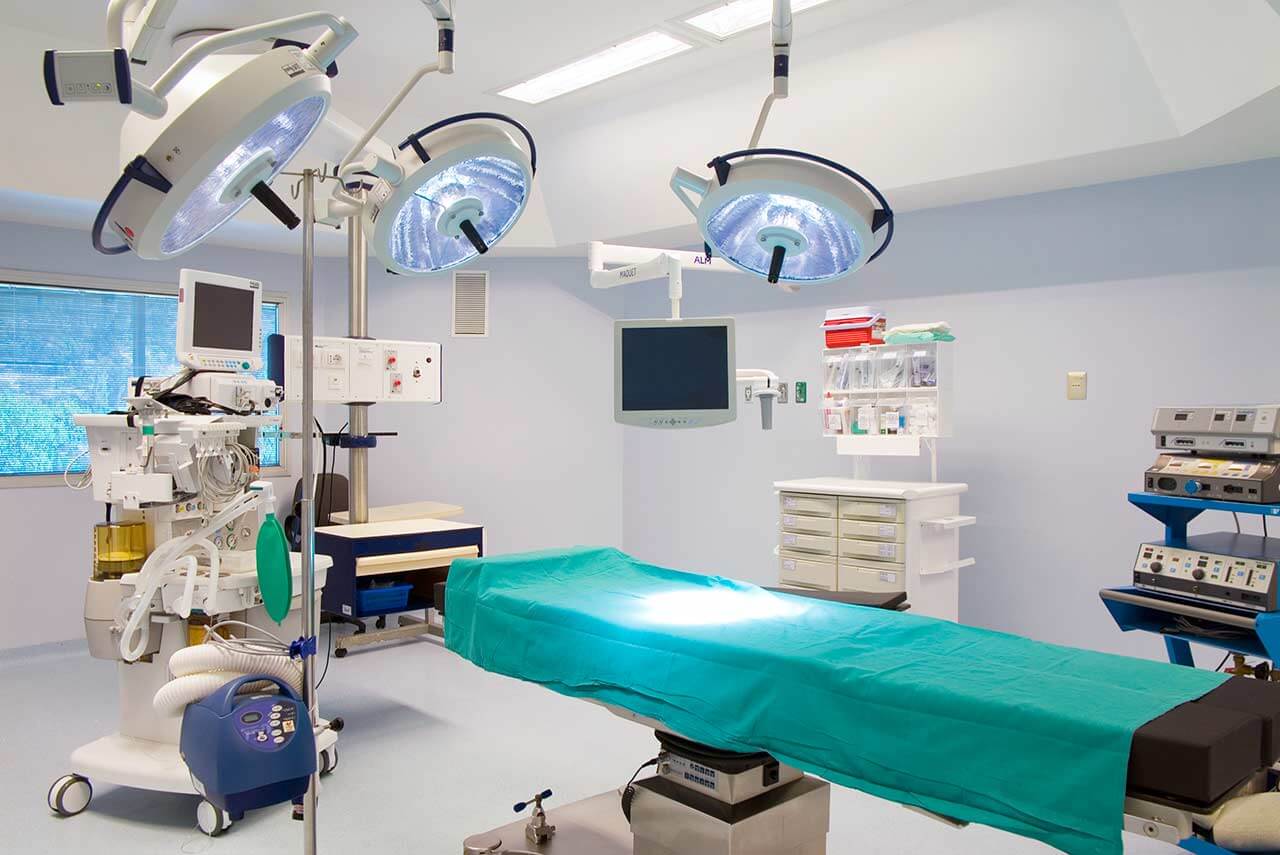
The program includes:
- Initial presentation in the clinic
- clinical history taking
- review of medical records
- physical examination
- laboratory tests:
- complete blood count
- biochemical analysis of blood
- blood glucose test
- oral glucose tolerance test
- glycated hemoglobin (HbA1c) test
- general urine analysis
- hormone test (insulin, C-peptide)
- inflammation markers (CRP, ESR)
- blood coagulation analysis (aPTT, PT, INR)
- nursing services
- treatment by chief physician and all leading experts
- explanation of individual treatment plan
Required documents
- Medical records
Service
You may also book:
 BookingHealth Price from:
BookingHealth Price from:
About the department
The Department of Endocrinology at the Tel Aviv Sourasky Medical Center provides the full range of diagnostics and treatment of all endocrine and metabolic disorders, including benign and malignant tumors of the endocrine system, diabetes mellitus, obesity, hypertension and complications of these pathologies. In addition, the department's specialists provide comprehensive consultations and follow-up care. When treating patients, the department's specialists strictly meet all the protocols of national and international specialized societies. The department is headed by Prof. Dr. med. Yona Greenman.
The treatment of benign and malignant tumors, such as thyroid cancer, adrenal tumors, neuroendocrine tumors (gastroenteropancreatic tumors, which most often develop in the stomach, thorax and neck) is one of the department's key activities. The doctors also pay special attention to the treatment of hypertension and its complications. Particular attention is paid to resistant arterial hypertension, hypertension in the elderly, hypertension in patients with Parkinson's disease, hypertension in patients with diabetes mellitus and secondary arterial hypertension.
In addition, the department includes the Metabolic Syndrome Health Center. The Center provides multidisciplinary treatment of obesity accompanied by arterial hypertension and impaired lipid metabolism, as well as early diagnostics of atherosclerosis in order to prevent cardiovascular complications. The center offers intensive interventional treatment with careful medical monitoring and nutrition control, as well as an individually designed physical activity program for each patient.
The department also provides a number of special services in the field of endocrinology, for example, dynamic assessment of pituitary function, ultrasound-guided thyroid fine needle aspiration biopsy, 24-hour outpatient blood pressure monitoring, insulin pump therapy, continuous, non-invasive monitoring of the state of blood vessels to early detect their dysfunction and atherosclerosis.
The main clinical focuses of the department include:
- Geriatric endocrinology
- Modification of risk factors for cardiovascular diseases
- Endocrine tumors
- Hypertension (high blood pressure)
- Pituitary disorders
- Neuroendocrinology
- Metabolic disorders, including lipid metabolism disorders
- Osteoporosis
- Diabetes mellitus
- Thyroid diseases
- Metabolic syndrome
- Obesity (including obesity caused by drugs)
- Other medical services
Curriculum vitae
In 1986, the doctor graduated from the Sackler School of Medicine at the Tel Aviv University, Israel. Since 1986, she studied internal medicine, underwent clinical training in endocrinology in Israeli hospitals. In 1992-1995 she graduated from advanced training courses in neuroendocrinology, took part in organizing several scientific researches at the Cedars-Sinai Medical Center, University of California, Los Angeles, USA. The professor has over 40 scientific works.
Clinical Focuses
- Endocrine diseases.
- Neuroendocrine diseases and tumors, including pituitary tumors.
- Diagnostics and treatment of thyroid disorders, hormonal disorders in adrenal tumors, as well as osteoporosis and endocrine disorders during pregnancy.
Membership in Professional Societies
- Israel Medical Association.
- Israel Endocrine Society.
- European Society of Endocrinology.
- International Pituitary Pathology Society.
- Israeli Scientific Association for the Study of Pituitary Pathologies.
- European Neuroendocrine Association.
Photo of the doctor: (c) Tel Aviv Sourasky Medical Center
About hospital
The Tel Aviv Sourasky Medical Center is the second largest and one of the most advanced healthcare and research facilities in Israel. It began its work in 1961, but it is still popular among the local population and attracts thousands of international patients.
The multidisciplinary medical center covers an area of 150,000 m². It has 60 departments and institutes with 1300 beds. The hospital annually provides its highly professional services to more than 1,5 million patients. In addition, the hospital enjoys prestige among doctors, many of whom want to have an internship and work here.
The medical center employs more than 6,400 people, among them more than 1,100 doctors, 1,760 nurses, 850 medical laboratory assistants, technical and other employees. The medical staff successfully combines clinical and research activities. The hospital annually conducts clinical trials aimed at the the development of new diagnostic and treatment methods.
Structurally, the medical facility is divided into four main hospitals. These include the General Hospital, the Rehabilitation Hospital, the Lis Maternity and Women's Hospital and the Dana-Dwek Children's Hospital.
The medical center is focused on individualized treatment. With adherence to the international standards of service, the specialists take into account the needs of each patient, his age and a specific clinical case. The medical center strives to provide treatment in a friendly and respectful atmosphere, with an empathic attitude to each patient.
Photo: (c) depositphotos
Accommodation in hospital
Patients rooms
The patients of the Tel Aviv Sourasky Medical Center live in comfortable rooms equipped with all necessary amenities. The standard room includes an automatically adjustable bed, a bedside table, a wardrobe for storing clothes. Also, each room has an ensuite bathroom with shower and toilet.
Meals and Menus
The medical center offers three meals a day: breakfast, lunch and dinner. For lunch, the patients have a choice of daily menus. If for some reason you do not eat all foods, you will be offered an individual menu. Please inform the medical staff about your food preferences prior to treatment.





